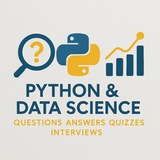#23.
Similar to a
#24. Range-based
Iterates over all elements in a range, such as an array or vector, without using an index.
#25.
Skips the current iteration of a loop and continues with the next iteration.
---
#CPP #Functions
#26. Function Declaration (Prototype)
Declares a function's name, return type, and parameters, allowing it to be used before it's defined.
#27.
A keyword specifying that a function does not return any value.
#28.
Terminates a function and can return a value to the caller.
#29.
Includes the C++ math library for complex mathematical operations.
#30.
A function from
---
#CPP #STL #Vector
#31.
Includes the library for
#32.
A sequence container that encapsulates dynamic size arrays.
#33.
Member function of
do-whileSimilar to a
while loop, but the code block is executed at least once before the condition is tested.#include <iostream>
int main() {
int i = 5;
do {
std::cout << "This will run once.";
i++;
} while (i < 5);
return 0;
}
This will run once.
#24. Range-based
for loopIterates over all elements in a range, such as an array or vector, without using an index.
#include <iostream>
#include <vector>
int main() {
int numbers[] = {10, 20, 30};
for (int num : numbers) {
std::cout << num << " ";
}
return 0;
}
10 20 30
#25.
continueSkips the current iteration of a loop and continues with the next iteration.
#include <iostream>
int main() {
for (int i = 0; i < 5; ++i) {
if (i == 2) {
continue; // Skip printing 2
}
std::cout << i << " ";
}
return 0;
}
0 1 3 4
---
#CPP #Functions
#26. Function Declaration (Prototype)
Declares a function's name, return type, and parameters, allowing it to be used before it's defined.
#include <iostream>
void sayHello(); // Function declaration
int main() {
sayHello(); // Call the function
return 0;
}
void sayHello() { // Function definition
std::cout << "Hello from function!";
}
Hello from function!
#27.
voidA keyword specifying that a function does not return any value.
#include <iostream>
void printMessage(std::string message) {
std::cout << message;
}
int main() {
printMessage("This function returns nothing.");
return 0;
}
This function returns nothing.
#28.
returnTerminates a function and can return a value to the caller.
#include <iostream>
int add(int a, int b) {
return a + b; // Return the sum
}
int main() {
int result = add(5, 3);
std::cout << "Result: " << result;
return 0;
}
Result: 8
#29.
#include <cmath>Includes the C++ math library for complex mathematical operations.
#include <iostream>
#include <cmath> // Include for sqrt()
int main() {
double number = 25.0;
std::cout << "Square root is: " << sqrt(number);
return 0;
}
Square root is: 5
#30.
pow()A function from
<cmath> that returns the base raised to the power of the exponent.#include <iostream>
#include <cmath>
int main() {
double result = pow(2, 3); // 2 to the power of 3
std::cout << "2^3 is: " << result;
return 0;
}
2^3 is: 8
---
#CPP #STL #Vector
#31.
#include <vector>Includes the library for
std::vector, a dynamic array.#include <iostream>
#include <vector>
int main() {
std::vector<int> myVector;
myVector.push_back(1);
std::cout << "Vector is ready.";
return 0;
}
Vector is ready.
#32.
std::vectorA sequence container that encapsulates dynamic size arrays.
#include <iostream>
#include <vector>
int main() {
std::vector<int> numbers = {10, 20, 30};
std::cout << "First element: " << numbers[0];
return 0;
}
First element: 10
#33.
.push_back()Member function of
std::vector that adds an element to the end.